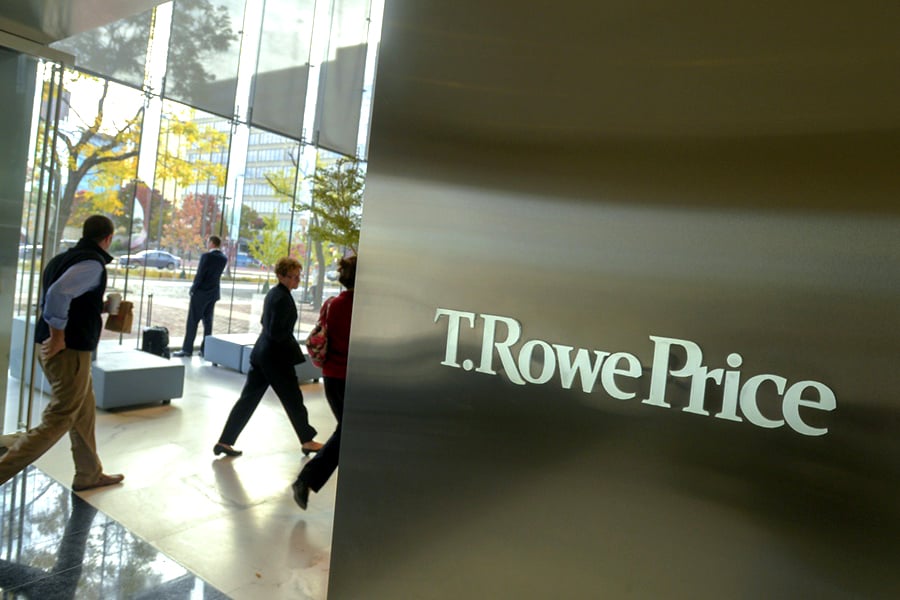

T. Rowe Price is putting a lawsuit over its 401(k) behind it for a price tag of $7 million, and as part of the settlement, it's opening the plan to outside investments.
Court documents filed late last week show the financial services giant has agreed to settle the 2017 lawsuit, which alleged the company profited excessively from of its workers investments in the plan, which was composed entirely of its own products. The 401(k) included some retail share classes of mutual funds rather than institutionally priced shares or alternative investment vehicles such as collective investment trusts or separately managed accounts, according to the lawsuit. The plaintiffs claimed that plan participants paid at least $27 million more than they should have in fees, which would have allowed them to save an additional $123 million in their accounts.
The parties agreed to settle the case last year just ahead of a trial that was scheduled to begin Sept. 13. The recent court filings provide the financial details that are being made public for the first time.
The settlement is separate from $6.6 million T. Rowe Price paid in 2019 to more than 6,000 participants who were in the plan in 2011, 2012 and 2013, according to court records. That payment was in response to the same lawsuit and was “an attempt to mitigate their liability for plaintiffs’ claims.”
“The payment was intended to put the plan on an equal footing, for the years 2011-2013, with other plans offering T. Rowe Price funds that received credit for record-keeping fees,” the settlement notice states. Had the entirety of those payments been invested in the plan, the assets would have appreciated to an estimated $11 million as of June 30, 2021.
"We are proud of the robust 401(k) benefit we offer employees, the strong performance of the plan’s investment lineup and our fiduciary process," a company spokesperson said in a statement. "While we continue to believe in the strength of our case, avoiding the distraction and cost of further litigation will enable us to focus fully on serving our clients and participants."
The class of the settlement includes about 18,000 people who had a balance in T. Rowe’s plan since Feb. 14, 2011. Those people will receive a payment of at least $20, with the remaining amount of the total settlement “allocated pro rata based on the extent of a Class member’s investments during the class period in the 39 challenged funds — T. Rowe Price funds that plaintiffs contend underperformed.”
The plan will add a brokerage window within six months of the settlement’s effective date and will retain it for at least 10 years.
“Since its inception, only T. Rowe Price funds have been offered in the plan. The brokerage window will allow plan participants, for the first time, to invest in a wide range of non-T. Rowe Price investment funds, including mutual funds and exchange traded funds, offered by other mutual fund families,” the notice read.
As much as $3.5 million of the settlement money will go toward attorneys’ fees.
Law firms McTigue Law and Cohen Milstein Sellers & Toll represent the plaintiffs and class.
Tech firm PTC has agreed to settle a case involving its 401(k) plan for more than $1.7 million, according to court records filed in December. The company was sued in September 2020 in a case brought by litigator Capozzi Adler.
The parties reached a settlement in principal last year, but the details of that agreement were just recently published in court.
The plaintiffs in the case alleged that the firm breached its duties under the Employee Retirement Income Security Act by failing to select investment options with lower expenses and stronger performance records for the $632 million plan, which includes about 3,800 participants.
As much as a third of the settlement money will go toward attorneys’ fees.

Executives from LPL Financial, Cresset Partners hired for key roles.

Geopolitical tension has been managed well by the markets.

December cut is still a possiblity.

Canada, China among nations to react to president-elect's comments.

For several years, Leech allegedly favored some clients in trade allocations, at the cost of others, amounting to $600 million, according to the Department of Justice.
Streamline your outreach with Aidentified's AI-driven solutions
This season’s market volatility: Positioning for rate relief, income growth and the AI rebound
